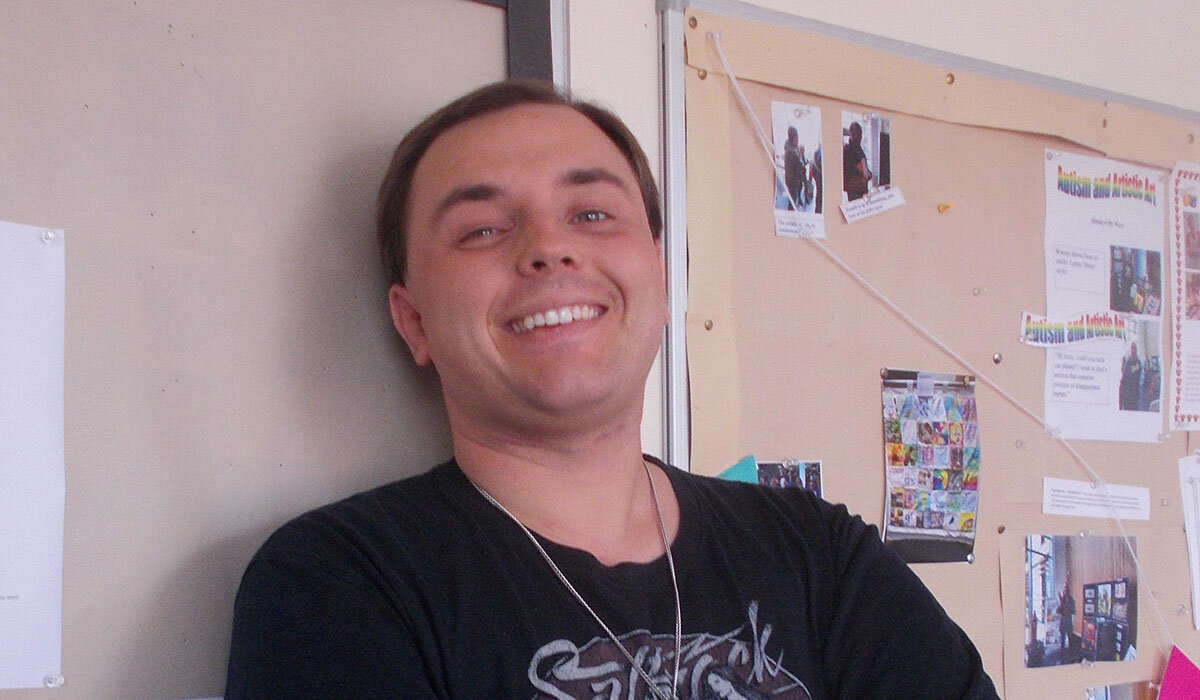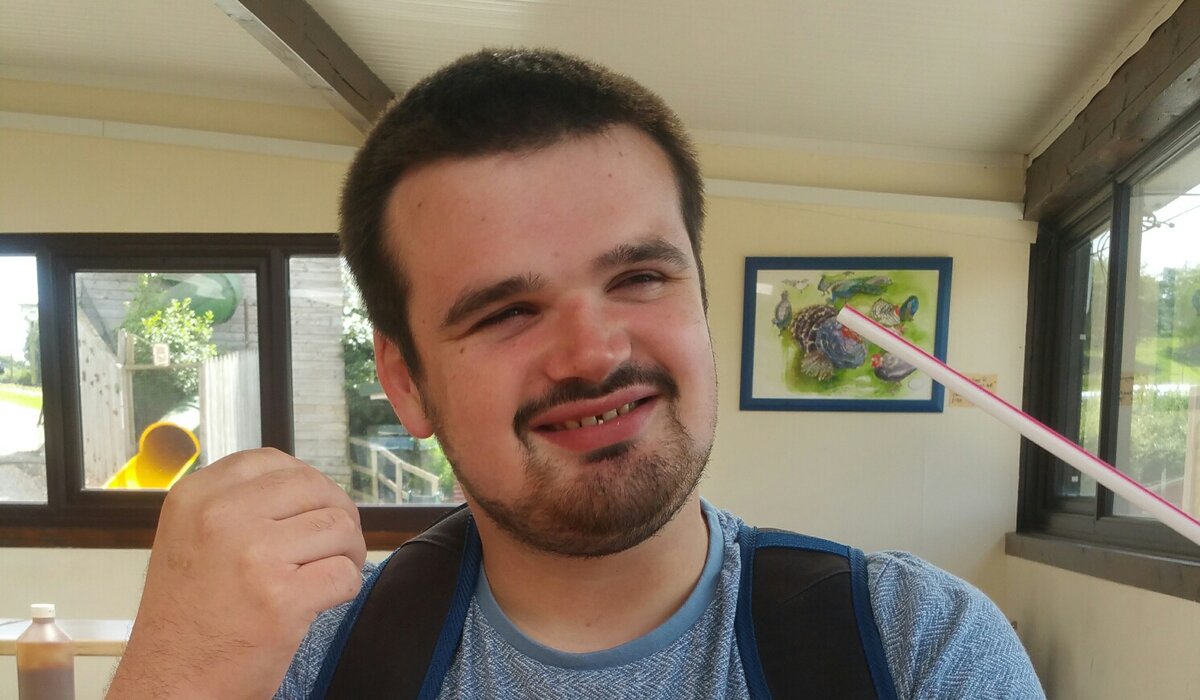
"Before the group I was very isolated and had no friends. They helped me to develop my social skills."
Elysia, autistic adult and animal lover
- on joining one of our social groups
Background
Meet Elysia, who attends our Centre in North England for support.
Elysia is in her late 20s has gained seven GCSEs at school and a qualification in Animal Care at college. Elysia is autistic and also has obsessive compulsive disorder (OCD) and anxiety. She is sensitive to bright lights and sudden loud noises. Elysia was referred to the Lancashire Centre in 2016 for support with social skills and started attending the social skills session every Thursday morning. Before joining the group, Elysia did not access any specialist services, stating that she was very isolated and had no friends.
Initially Elysia found it difficult accessing the centre due to her anxiety, the noise level and the number of people attending. Elysia would not initiate conversation and was uncomfortable responding in a group session. Her eye contact with others was minimal.
How we supported her
Structure was provided within the social skills sessions to enable Elysia to predict what would happen within the session. Staff ensured that Elysia was familiar with the group before asking direct questions. Elysia was encouraged gradually to increase interaction within the group. Staff gave support and encouragement throughout the sessions. The group were given practical opportunities within the local community to use knowledge gained within the social skills sessions.
Elysia is now comfortable with the group and will instigate conversation and interaction with others. She finds it easier to cope with crowds and noise and is also more willing to try new things, such as trampolining. We asked if she would like to observe with no pressure to attend. She did observe and said that she would like to go with the group. She now attends the centre for a full day and joins the group in trampolining in the afternoon.
Dad says: "The biggest change with Elysia is with her social skills. She is much better at communicating and understanding others. She is much better at talking on the telephone, although she still finds it hard at times. She is much better at changing her routines at short notice. She holds her head up more when she is out and more eye contact. She used to sit in the back of the car with sun blinds on the windows so no one could see her, now she sits in the front of the car watching all the world go by."
Elysia did not like to eat in front of others and had her lunch in a different room to the rest of the group.
Staff at the centre supported Elysia by providing a quieter room for her and ensuring there was no pressure to join the group for lunch. Staff monitored Elysia’s progress within her group and suggested that they sit in the same room as Elysia for lunch. Over time, Elysia felt comfortable in allowing staff to sit with her. Gradually over the following months, Elysia started to join one or two people for lunch. Staff encouraged her to look at other choices for lunch and supported her to make her own lunch. Elysia now makes her own lunch every week and chooses to sit with the group for lunch.
Dad said: "She can now make simple meals herself, no gas hobs, just electric oven and microwave."
"I would like to live in supported living under the National Autistic Society, and I would love to work with animals and get married one day."
Outcome
Elysia wants to be as independent as possible and in future would like to have a job, her own home, get married, take dance classes, travel more and go zip-wiring.
Elysia will be starting the travel training module in the next few weeks to extend opportunities and promote her independence. Dad stated that she does get on the bus but still finds it very hard, although she manages to push past her fear most of the time.

Elysia
He also stated that this was a big change from his point of view to see her being so independent. She also wishes to continue trampolining and is more open to trying new activities.
More stories from our adult services

"My time is used more constructively now, I am developing closer bonds with my colleagues and I am settled into a new routine."
Nick, autistic adult
- on finding work, and his experience at our Centre
Read Nick's story

